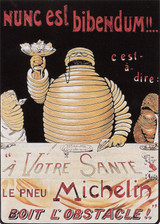How can I reduce my risk for listeriosis?
:
How can I reduce my risk for listeriosis?
The general guidelines recommended for the prevention of listeriosis are similar to those used to help prevent other foodborne illnesses, such as salmonellosis(http://www.cdc.gov/salmonella/). In addition, there are specific recommendations for persons at higher risk for listeriosis. Recommendations related to Listeria in melons, including cantaloupes, are also included on this page.
There are some general recommendations on how to prevent an infection with Listeria, and some additional recommendations specifically for persons who are at higher risk.
Store foods safely.
- Use precooked or ready-to-eat food as soon as you can. Do not store the product in the refrigerator beyond the use-by date; follow USDA refrigerator storage time guidelines:
- Hot Dogs – store opened package no longer than 1 week and unopened package no longer than 2 weeks in the refrigerator.
- Luncheon and Deli Meat – store factory-sealed, unopened package no longer than 2 weeks. Store opened packages and meat sliced at a local deli no longer than 3 to 5 days in the refrigerator.
- Divide leftovers into shallow containers to promote rapid, even cooling. Cover with airtight lids or enclose in plastic wrap or aluminum foil. Use leftovers within 3 to 4 days.
Choose safer foods.
- Do not drink raw (unpasteurized) milk(http://www.cdc.gov/foodsafety/rawmilk/raw-milk-index.html), and do not eat foods that have unpasteurized milk in them.
- Find more specific information about this topic on the Listeria and Food(http://www.cdc.gov/foodsafety/specific-foods/listeria-and-food.html) web page.
Follow this general FDA advice for melon safety:
- Consumers and food preparers should wash their hands with warm water and soap for at least 20 seconds before and after handling any whole melon, such as cantaloupe, watermelon, or honeydew.
- Scrub the surface of melons, such as cantaloupes, with a clean produce brush under running water and dry them with a clean cloth or paper towel before cutting. Be sure that your scrub brush is sanitized after each use, to avoid transferring bacteria between melons.
- Promptly consume cut melon or refrigerate promptly. Keep your cut melon refrigerated at, or less than 40 degrees F (32-34 degrees F is best), for no more than 7 days.
- Discard cut melons left at room temperature for more than 4 hours.
Recommendations for persons at higher risk, such as pregnant women, persons with weakened immune systems, and older adults in addition to the recommendations listed above, include:
Meats
- Do not eat hot dogs, luncheon meats, cold cuts, other deli meats (e.g., bologna), or fermented or dry sausages unless they are heated to an internal temperature of 165°F or until steaming hot just before serving.
- Avoid getting fluid from hot dog and lunch meat packages on other foods, utensils, and food preparation surfaces, and wash hands after handling hot dogs, luncheon meats, and deli meats.
- Pay attention to labels. Do not eat refrigerated pâté or meat spreads from a deli or meat counter or from the refrigerated section of a store. Foods that do not need refrigeration, like canned or shelf-stable pâté and meat spreads, are safe to eat. Refrigerate after opening.
Soft Cheeses
- Do not eat soft cheese such as feta, queso blanco, queso fresco, brie, Camembert, blue-veined, or panela (queso panela) unless it is labeled as made with pasteurized milk. Make sure the label says, "MADE WITH PASTEURIZED MILK."
- Be aware that Mexican-style cheeses made from pasteurized milk, such as queso fresco, likely contaminated during cheese-making, have caused Listeria infections.
Seafood
- Do not eat refrigerated smoked seafood, unless it is contained in a cooked dish, such as a casserole, or unless it is a canned or shelf-stable product.
- Refrigerated smoked seafood, such as salmon, trout, whitefish, cod, tuna, and mackerel, is most often labeled as "nova-style," "lox," "kippered," "smoked," or "jerky."
- These fish are typically found in the refrigerator section or sold at seafood and deli counters of grocery stores and delicatessens.
- Canned and shelf stable tuna, salmon, and other fish products are safe to eat.
Recent Posts
-
The Origin of the Michelin Guide
From a little red guide book to an iconic standard in international fine dining, have you ever w …Mar 10, 2024 -
Make Color-Coding Your Resolution
Color-coding is a simple way to have a big impact on your facility’s food safety, sanitation and co …Jan 16, 2024 -
Why EPDM Transfer Hoses are a Great Choice for your Brewery
EPDM stands for ethylene propylene diene monomer. It’s a synthetic rubber that has quickly gained t …Jun 14, 2023



